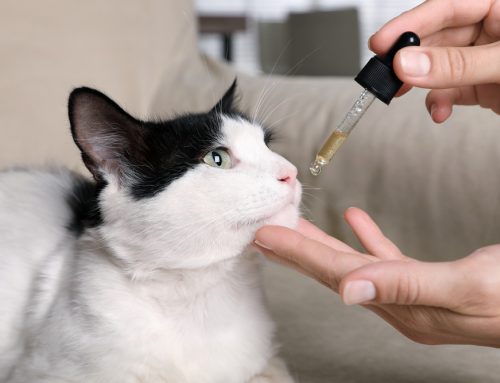At Walnut Creek Vet Hospital in Springtown, Texas, each pet’s breed contributes to its unique personality and health profile. This individuality makes breed-specific knowledge essential for every pet owner, as many breeds are predisposed to certain health issues. Understanding your pet’s breed-related risks can help you take preventive steps and recognize symptoms early, ultimately improving their quality of life.
Why Do Breed-Related Health Conditions Occur?
Breed-specific health issues often result from selective breeding to preserve certain physical or behavioral traits. Over generations, these traits—whether they be a short muzzle, unique body structure, or specific coat type—can inadvertently increase susceptibility to particular health issues. Responsible breeders work to minimize the risk of these conditions, but understanding these potential issues can help pet owners remain vigilant about preventive care, appropriate lifestyle adjustments, and regular health monitoring.
Breed-Specific Health Concerns in Dogs
Brachycephalic Syndrome
Common Breeds Affected: Bulldogs, Pugs, Shih Tzus, Boxers
Brachycephalic syndrome is common among flat-faced or short-nosed dog breeds, where the shortened skull shape affects breathing. Dogs with this syndrome may experience symptoms such as; labored breathing, loud snoring, and heat intolerance. Prevention starts with responsible breeding practices, but owners can help by avoiding over-exertion, maintaining a healthy weight, and taking extra care during hot weather. In severe cases, surgery to open narrowed airways may be needed. Regular check-ups help identify early signs, and our team can guide you on the best lifestyle adaptations for brachycephalic breeds.
Hip Dysplasia
Common Breeds Affected: German Shepherds, Labrador Retrievers, Golden Retrievers
Hip dysplasia is a genetic condition in large breeds that can lead to pain and mobility issues. Signs include difficulty rising, reluctance to climb stairs, and an abnormal gait. Early management with joint supplements, weight control, and gentle exercise can help. As hip dysplasia progresses, pain management techniques like physical therapy or laser therapy can provide relief, and surgery may be considered in advanced cases. Genetics play a significant role in hip dysplasia, so early detection and preventive care are key.
Allergies
Common Breeds Affected: Golden Retrievers, Poodles, Bulldogs
Certain breeds are prone to allergies, which can manifest as skin irritation, chronic ear infections, or gastrointestinal issues. Managing allergies often involves hypoallergenic diets, regular ear cleanings, and allergy medications. Identifying the triggers—whether environmental, dietary, or seasonal—helps manage flare-ups.
Bloat (Gastric Dilatation-Volvulus)
Common Breeds Affected: Great Danes, Standard Poodles, German Shepherds
Bloat, or gastric dilatation-volvulus (GDV), is a life-threatening condition seen commonly in large, deep-chested breeds. Symptoms can include restlessness, drooling, and an enlarged abdomen. Quick action is crucial, so recognizing early signs and contacting a vet immediately is essential. Preventive strategies include feeding multiple smaller meals, avoiding heavy exercise after eating, and, in high-risk dogs, discussing a preventive gastropexy surgery with your vet.
Eye Issues
Common Breeds Affected: Pugs, Boston Terriers, Cocker Spaniels
Eye conditions are more common in smaller breeds or brachycephalic breeds, which may experience dry eyes, corneal ulcers, or progressive retinal atrophy. Regular eye exams can help detect these issues early, and keeping your pet’s eyes clean and clear of debris can help reduce risks. Since these conditions can develop due to physical features like shallow eye sockets, gentle handling, and preventive care are key.

Breed-Specific Health Concerns in Cats
Polycystic Kidney Disease (PKD)
Common Breeds Affected: Persians, Himalayans, British Shorthairs
PKD is a genetic condition that causes cysts to form in the kidneys, gradually leading to kidney failure. Symptoms may include increased thirst, frequent urination, and weight loss. Regular vet check-ups and genetic testing for predisposed breeds can identify PKD early. While there is no cure, management includes a kidney-friendly diet, monitoring hydration, and supportive care to slow the disease’s progression. For more tips on kidney health, read our guide on understanding your pet’s blood work.
Hypertrophic Cardiomyopathy (HCM)
Common Breeds Affected: Maine Coons, Ragdolls, British Shorthairs
HCM is the most common heart disease in cats, where the heart’s walls thicken, making it harder for the heart to pump blood effectively. Symptoms may include rapid breathing, lethargy, and decreased appetite. Maine Coons and Ragdolls have a genetic predisposition to HCM, making regular screenings vital. Routine exams and echocardiograms can detect HCM early, allowing for medication management to help maintain heart function and prolong quality of life.
Breathing Issues in Brachycephalic Breeds
Common Breeds Affected: Persians, Exotic Shorthairs
Just as in dogs, brachycephalic breeds of cats like Persians and Exotic Shorthairs have unique facial structures that can cause respiratory issues. Symptoms include noisy breathing, frequent sneezing, and sensitivity to heat. Keeping these cats in cool, well-ventilated areas and preventing excessive weight gain are helpful preventive steps. Regular vet visits help monitor respiratory health, and your vet can recommend ways to make breathing easier.
Dental Disease
Common Breeds Affected: Siamese, Abyssinians, Persian
Some cat breeds are more prone to dental disease due to genetic predispositions. Regular dental cleanings, both professional and at-home care, are essential to prevent issues like gingivitis and periodontal disease. Cats can be masters at hiding pain, so keeping an eye out for subtle signs—such as difficulty chewing, drooling, or pawing at the mouth—can make a significant difference.
Why Proactive Care Matters
Understanding your pet’s breed-specific predispositions can make a substantial impact on their long-term health. Regular veterinary checkups allow us to detect potential health issues early, giving us the best chance to manage them effectively. Genetic testing, especially for pets with strong breed-specific risks, helps uncover hidden health conditions, so that you can make informed choices about your pet’s care.
Breed-specific conditions, from joint care to kidney health, show the importance of prevention and early detection. If you notice any signs or symptoms in your pet, contact us at Walnut Creek Vet Hospital right away. We’re here to help your pet live a healthy, happy life, with guidance tailored to their unique needs.









Leave A Comment